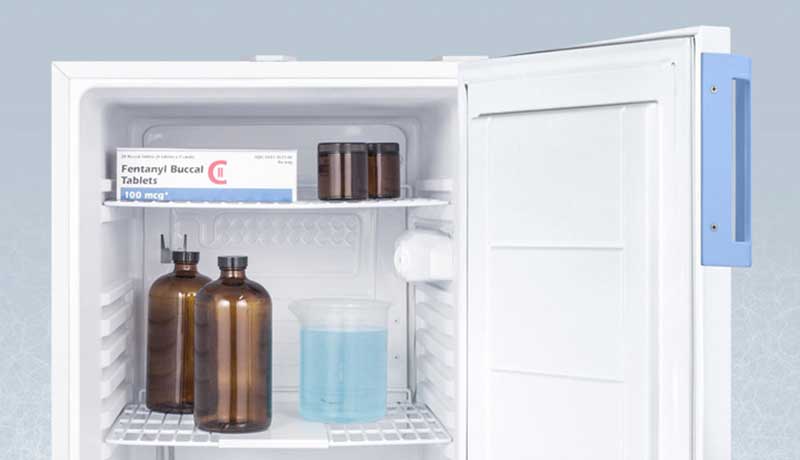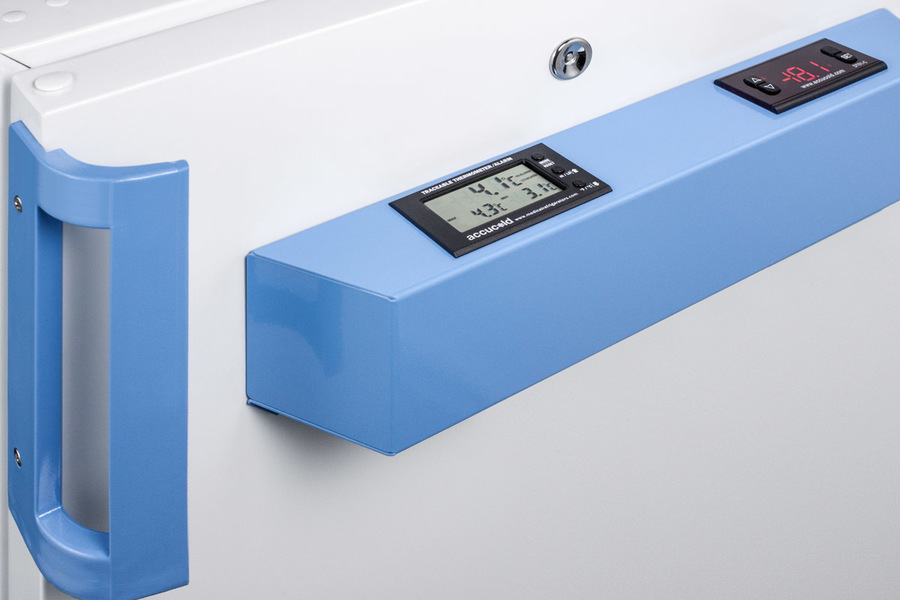
How to Specify a Compact Medical Refrigerator
Health care clinics must exercise care when selecting a compact medical refrigerator to store temperature-sensitive products such as vaccines and other pharmaceuticals. A compact medical refrigerator is a smart choice when space is at a premium, but a small size should not be at the cost of critical features that protect contents. This post provides tips on how to specify a compact medical refrigerator.
Why a Medical Refrigerator is Important
If there is temptation to buy a dormitory or residential-grade refrigerator it must be resisted. In fact, the former is definitely ruled against in the CDC’s Vaccine Storage and Handling Toolkit while the latter may be acceptable under certain conditions. We encourage you to download and review these guidelines, updated for 2020 before you decide on your medical refrigerator.
Especially important is compliance with CDC and Vaccines for Children refrigeration guidelines if your healthcare facility participates in these programs.
The “Cost” of Improper Storage
Regardless, consider the cost of spoilage, loss of potency or other damage if your refrigerator fails to maintain recommended storage temperatures. This can quickly offset any “savings” resulting from purchasing a unit not designed for safely keeping vaccines and other pharmaceuticals at the recommended storage temperature.
Yet problems relating to improper storage continue.
A February 12, 2019, issue of Kaiser Health News noted “In the past 13 months alone, 117 children received possibly compromised vaccines against polio, meningococcal disease and the human papillomavirus at an Indian Health Service clinic in Oklahoma City because of improper refrigeration. Similar issues with temperature control prompted a health clinic in Indianapolis to send letters offering to revaccinate 1,600 people last January, according to local news reports.”
Specification Tips for a Medical Refrigerator
Meeting CDC and VFC guidelines should be Number One on your list of medical refrigerators buying criteria. Let’s take a closer look at what you should be looking for:
- Tight Temperature Control
Look for units with a digital microprocessor temperature control for precise temperature management.
- A High/Low Temperature Alarm that sounds if the interior temperature rises or falls out of set range

- An NIST-Calibrated Temperature Display, set as you prefer to ⁰C or ⁰F, showing the current interior and high/low temperature settings. Controls, settings and interior conditions are displayed on the door of the unit.
- Buffered Temperature Probe This is important because it replicates the temperature of the medical refrigerator contents, not the interior cabinet temperature. This method is recommended by the CDC and the VFC program. The probe is encased in a glycol-filled bottle and stored in a fixed box on the center shelf.
Other Important Criteria
This unit (as are most medical refrigerators) is equipped with a factory-installed lock supplied with a two keys to safeguard the contents. An internal fan circulates chilled air throughout the unit to maintain temperature uniformity. There is also a 3/8″ probe hole for users who wish to install additional monitoring equipment.
Your medical refrigerator investment is protected by a two year warranty on parts and labor and a five year warranty on the compressor.
Remember It Is For Medical Use
The bright white and easily maintained Summit refrigerators offer units designed for medical products as well as for use in laboratories.
It is not to be used for storing staff lunches and beverages, and a notice should be so given. The factory installed door lock helps control unauthorized access. Also remember to
- Assign two staff members with responsibility to monitor the unit
- Maintain your medical refrigerator unit by cleaning it on a regular basis using a mild detergent
- Check and record the temperature of the unit at the beginning and end of the business day
- Use optional gel packs to help hold internal temperatures
- Note content expiration dates and use the first-in first-out procedure for dispensing drugs
Contact the laboratory and medical refrigerator specialists at Tovatech for help in specifying the size and features you need in order to provide the optimum storage environment for your valuable laboratory and medical products.

